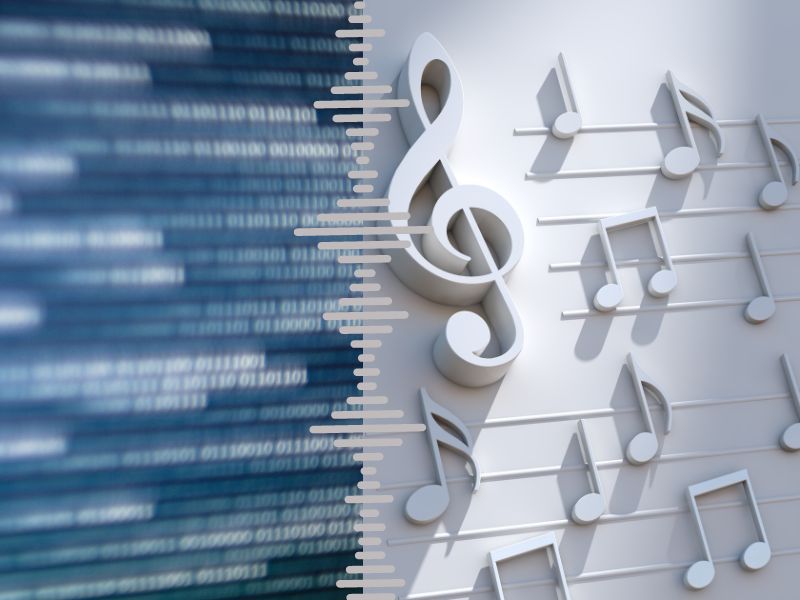Music has been a fundamental part of human culture for millennia. It’s a medium through which we express emotions, tell stories, and connect with one another on a profound level. Over the years, music has evolved in countless ways, from classical compositions to rock anthems to electronic beats. Now, in the age of artificial intelligence (AI), we find ourselves on the cusp of a new era in music creation—AI-created music.
The Rise of AI in Music Composition
Artificial intelligence has made significant strides in various fields, including music composition. AI algorithms are now capable of generating melodies, harmonies, and even entire songs. These AI systems analyze vast amounts of existing music data to understand patterns, chord progressions, and musical structures. This knowledge is then used to create original compositions that can rival the work of human composers.
One of the most remarkable aspects of AI-generated music is its ability to produce music in various styles and genres. Whether it’s classical symphonies, pop hits, or experimental electronica, AI can adapt to different musical preferences and create music that resonates with a wide audience.
The Collaborative Potential of AI and Musicians
AI isn’t here to replace musicians; it’s here to collaborate with them. Many musicians and composers are embracing AI as a tool to enhance their creative process. They use AI-generated melodies and harmonies as a starting point, adding their own human touch, emotions, and lyrics to create unique compositions.
AI can also assist in music production tasks such as arranging, mixing, and mastering. It can analyze audio tracks and suggest improvements, helping musicians achieve a polished and professional sound. This collaboration between AI and musicians is pushing the boundaries of what’s possible in music creation.
AI-Generated Music in the Mainstream
AI-generated music is no longer confined to research labs or experimental projects. It’s increasingly making its way into the mainstream music industry. Some AI-generated songs have even gained recognition and popularity.
One of the notable examples is “Daddy’s Car” by Flow Machines, an AI system developed by Sony CSL Research Laboratory. The song mimics the style of The Beatles and was created using AI algorithms trained on the band’s music. While it may not replace the iconic sound of the Fab Four, it demonstrates the potential of AI to capture the essence of musical styles.
Another AI project, OpenAI’s “MuseNet,” can generate music in various styles and genres, from classical to jazz to pop. Musicians and music producers are using MuseNet to spark their creativity and explore new musical directions.
Ethical and Copyright Considerations
The rise of AI-generated music also raises important ethical and copyright questions. Who owns the rights to AI-created compositions? Can AI-generated music infringe on the copyrights of human musicians? These are complex issues that will require legal frameworks and ethical guidelines to address.
Additionally, there’s a debate about the authenticity of AI-generated music. Some argue that music created by algorithms lacks the emotional depth and personal experiences that human musicians bring to their work. Others see AI as a tool that can complement human creativity, offering new possibilities and pushing the boundaries of what music can be.
The Future of AI in Music
As AI technology continues to advance, we can expect even more exciting developments in the world of music. AI could help musicians overcome creative blocks, explore new musical genres, and bring music to underserved communities. It may even enable entirely new forms of interactive and immersive musical experiences.
In conclusion, AI-created music is not replacing human musicians but opening up new horizons for musical exploration and collaboration. It’s a tool that can inspire, assist, and expand the creative possibilities in the world of music. As we navigate this exciting intersection of technology and art, we can look forward to a future where AI and human musicians create harmonious melodies together.
